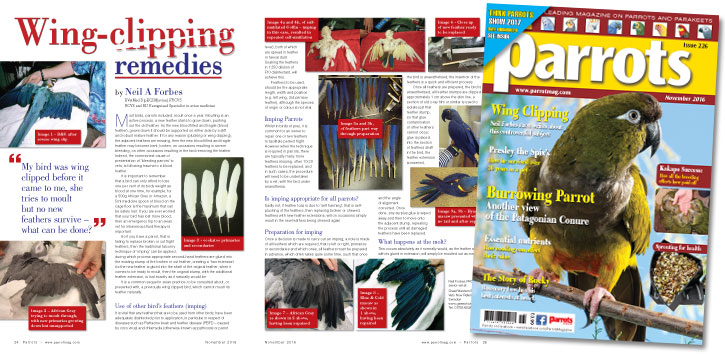
by Neil A Forbes, BVetMed DipECZM(avian) FRCVS, RCVS and EU Recognised Specialist in avian medicine
Most birds, parrots included, moult once a year. Moulting is an active process, a new feather starts to grow down, pushing out the old feather. As the new blood filled and fragile (blood feather), grows down it should be supported on either side by a stiff and robust mature feather. If for any reason (plucking or wing clipping), the adjacent feathers are missing, then the new blood filled and fragile feather may become bent, broken, on occasions resulting in severe bleeding, on other occasions resulting in the bird removing the feather. Indeed, the commonest cause of presentation of ‘bleeding parrots’ to vets, is following trauma to a blood feather.
It is important to remember that a bird can only afford to lose one per cent of its body weight as blood at one time, for example, for a 500g African Grey or Amazon, a 5ml medicine spoon of blood on the cage floor is the maximum that can be safely lost. If you are ever worried that your bird has lost more blood, then an emergency trip to an avian vet for intravenous fluid therapy is important.
Buy Now!

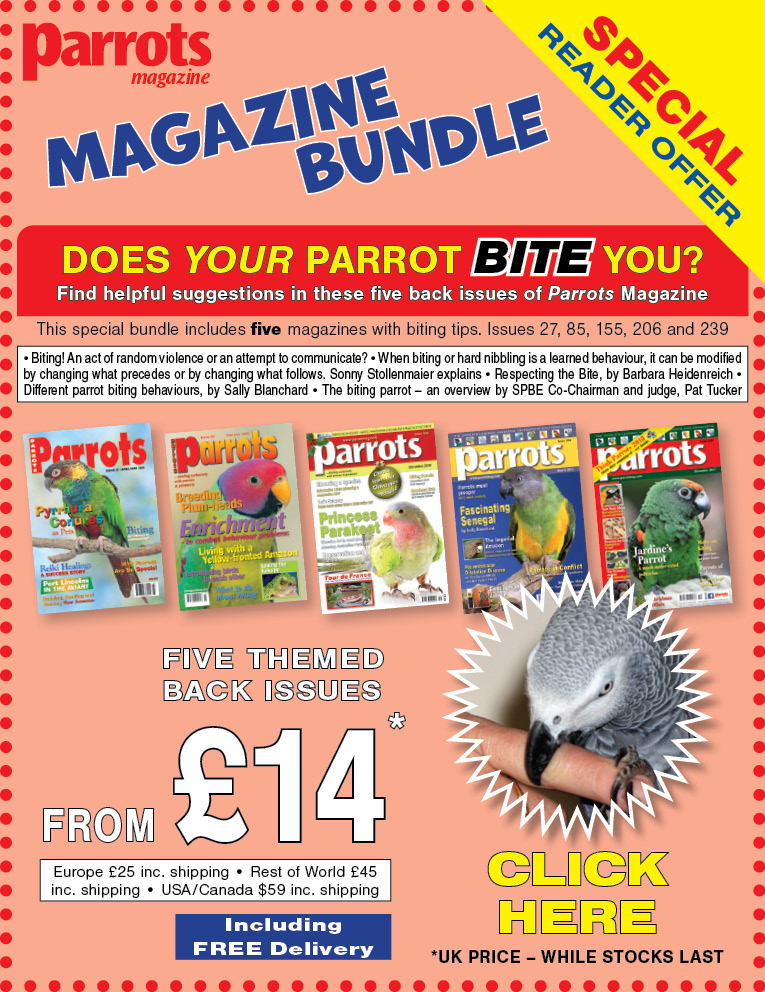
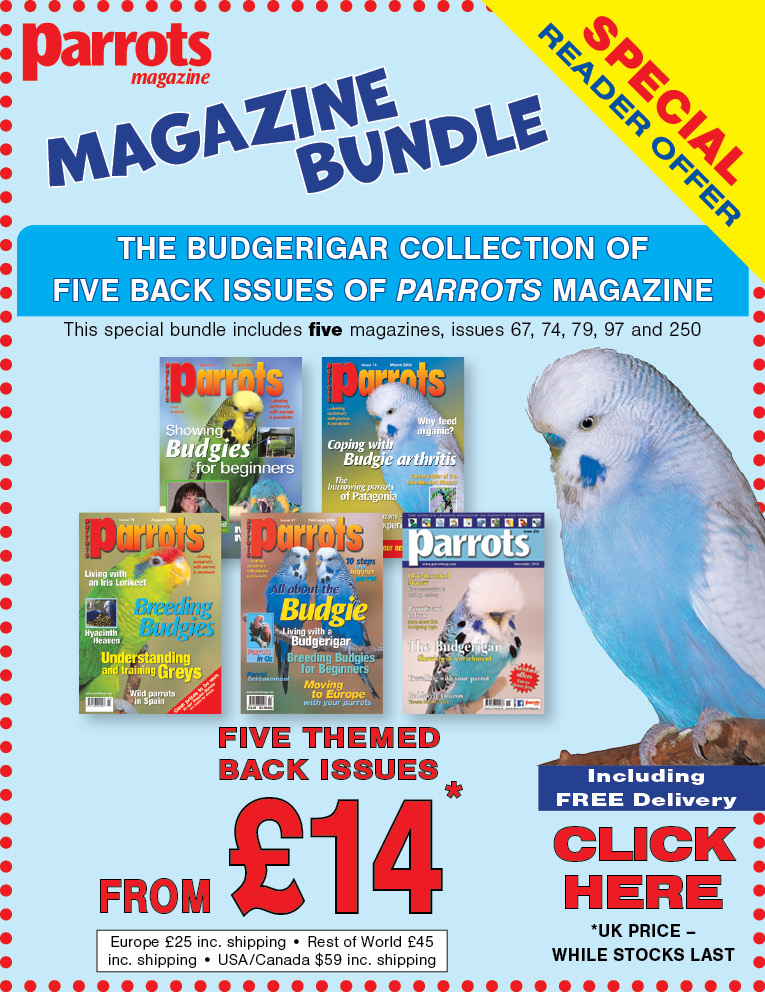
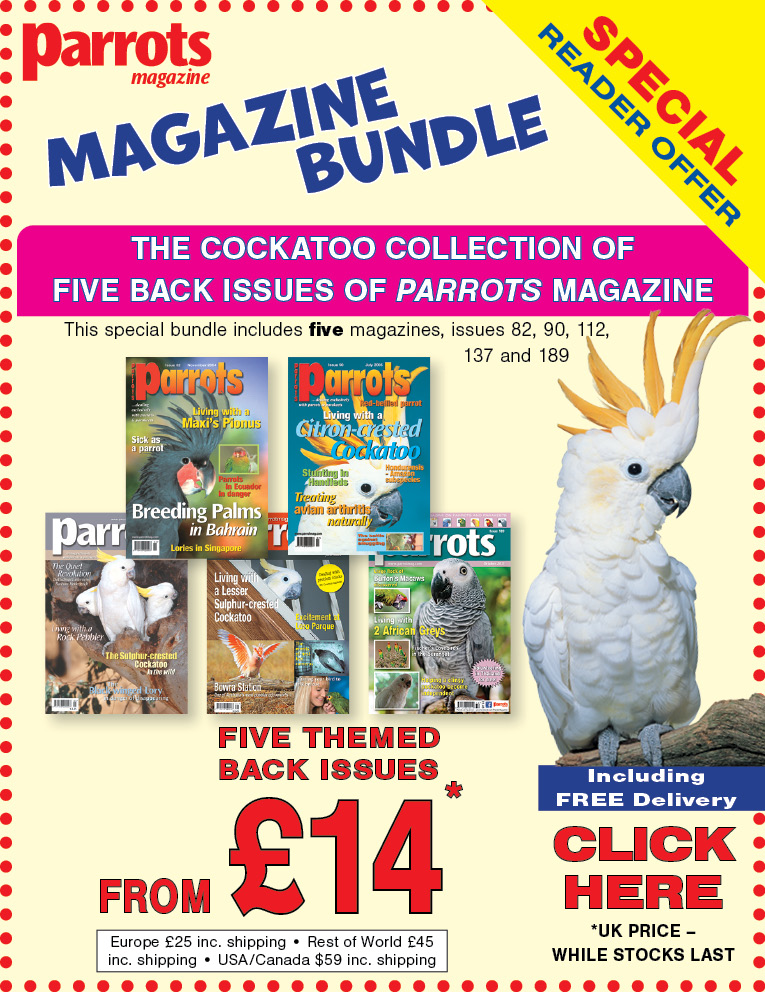
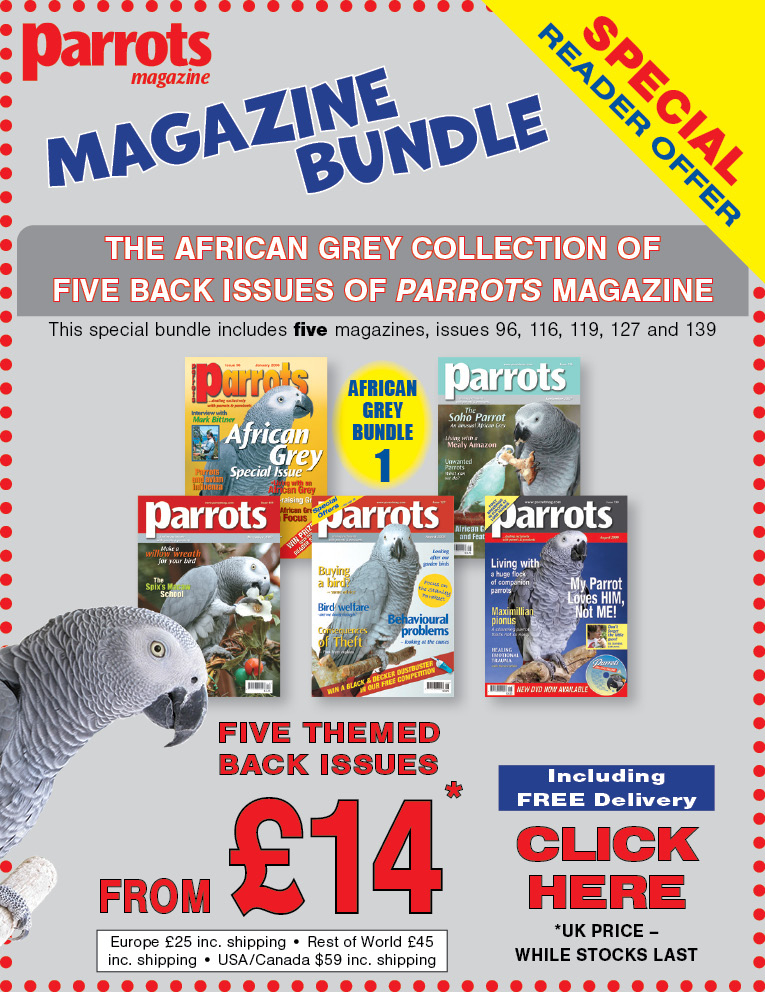
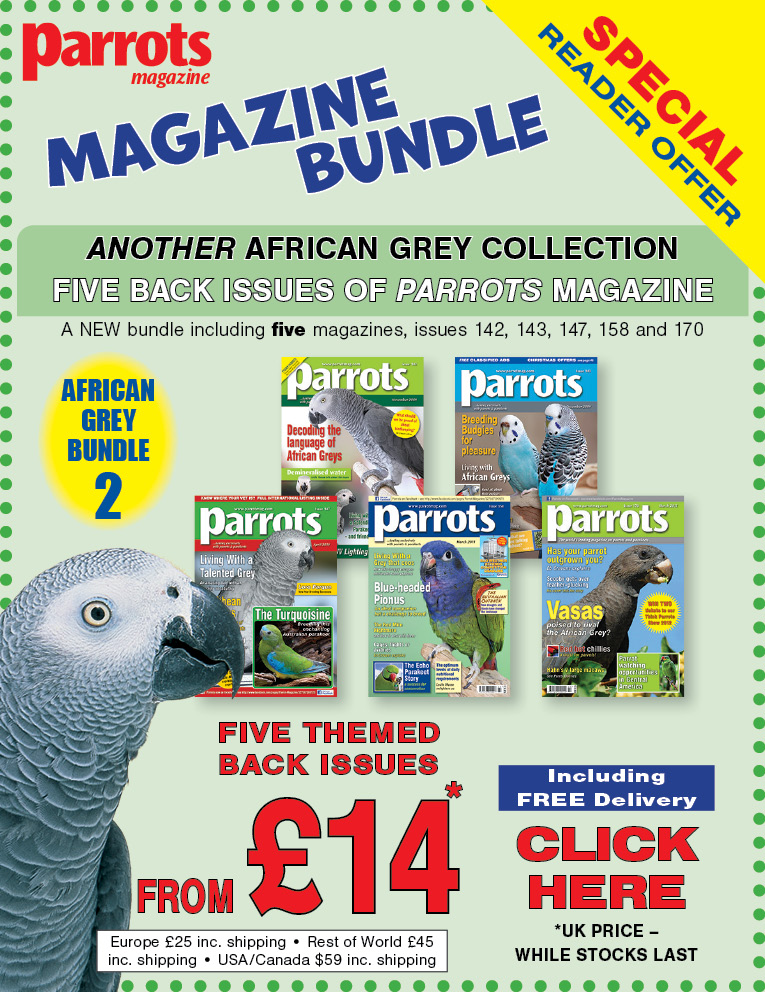
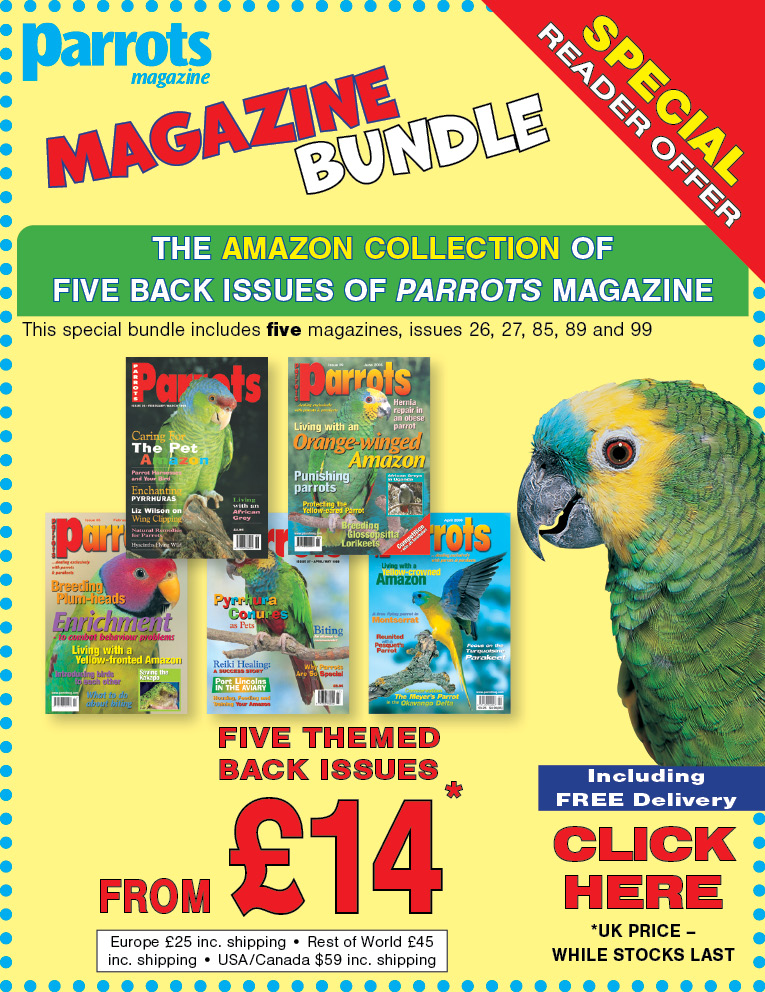

Parrot Chat
Buyers Guides
Breeding articles